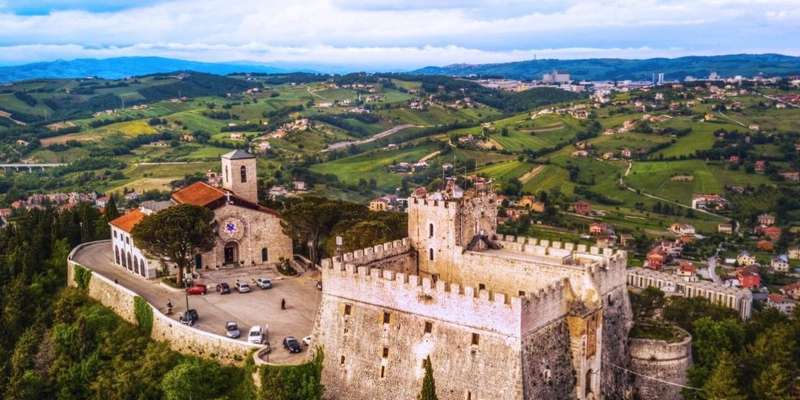- Home
- Useful Tips
- Where to buy traditional...
Finding genuine traditional souvenirs in Campobasso can feel like searching for hidden treasure. Over 70% of visitors report dissatisfaction with mass-produced 'local' items sold in tourist areas, longing instead for authentic pieces that capture Molise's rich cultural heritage. The frustration mounts when limited vacation time is wasted navigating crowded piazzas or deciphering which workshops maintain centuries-old craftsmanship traditions. This challenge goes beyond mere shopping – it's about connecting with Campobasso's soul through tangible memories. Authentic purchases directly support multi-generational artisan families preserving vanishing techniques in leatherworking, lace-making, and copper craftsmanship unique to this mountainous region.


Why most souvenir shops disappoint visitors
The narrow streets surrounding Campobasso's castle may tempt with colorful displays, but seasoned travelers quickly notice identical merchandise appearing in multiple storefronts. These commercialized outlets often source products from outside Molise region, despite 'handmade in Italy' labels. Authentic Campobasso craftsmanship involves time-intensive processes – a single bobbin lace collar can take 80 hours to complete – making genuine pieces rare in high-traffic areas. Local artisans typically sell through smaller channels to maintain fair pricing without middlemen. Recognizing this distinction saves you from returning home with generic souvenirs that lack the cultural narrative you sought.
Three hidden workshops only locals frequent
Venture beyond Piazza Vittorio Emanuele to discover family-run botteghe keeping traditions alive. The third-generation copper artisans at Rameria Vaccaro still hand-hammer pots using 19th-century techniques, their tiny showroom tucked behind Cattedrale della Santissima Trinità. For intricate Tombolo lace, seek out the basement workshop of Arte del Merletto on Via Mazzini where Signora Giovanna teaches the ancient pillow-lace method. Leather enthusiasts should follow the earthy scent of vegetable-tanned hides to Pelletteria Artigiana D'Angelo near Porta San Antonio. These craftspeople welcome visitors who appreciate their art, often sharing stories behind each piece that transform purchases into meaningful connections with Campobasso's living history.
When to visit for the best artisan markets
Timing your souvenir hunt correctly unlocks access to exceptional pieces without the crowds. While daily mercatini cater to tourists, the true goldmine occurs during Campobasso's Wednesday morning market along Via Roma. Here, rural artisans from surrounding villages bring their finest work before noon – arrive by 9am to witness cheesemakers, woodcarvers, and blacksmiths arranging their stalls. Seasonal events like the Festa dei Misteri (mid-June) or Christmas Craft Fair see master artisans displaying museum-quality work. Should your visit miss these dates, the year-round Mostra Mercato dell'Artigianato inside Palazzo Pistilli showcases rotating collections from Molise's craft guilds, with staff happy to arrange visits to members' off-site workshops.
How to verify authentic Molise craftsmanship
Distinguishing true Campobasso artistry from imitations requires knowing a few key indicators. Authentic copperware bears hammer marks and the artisan's initials stamped near the rim, never a perfectly smooth surface. Genuine Tombolo lace demonstrates irregular stitch patterns when examined closely – machine-made versions appear unnaturally uniform. For leather goods, ask which local tanneries supplied the hides (Conceria Caruso is a respected name). Many master craftspeople belong to the Consiglio Regionale dell'Artigianato Molisano, displaying their membership certificate proudly. Don't hesitate to request demonstration of techniques; authentic artisans cherish opportunities to showcase their skills. These verification methods ensure your souvenirs become cherished heirlooms rather than forgotten trinkets.